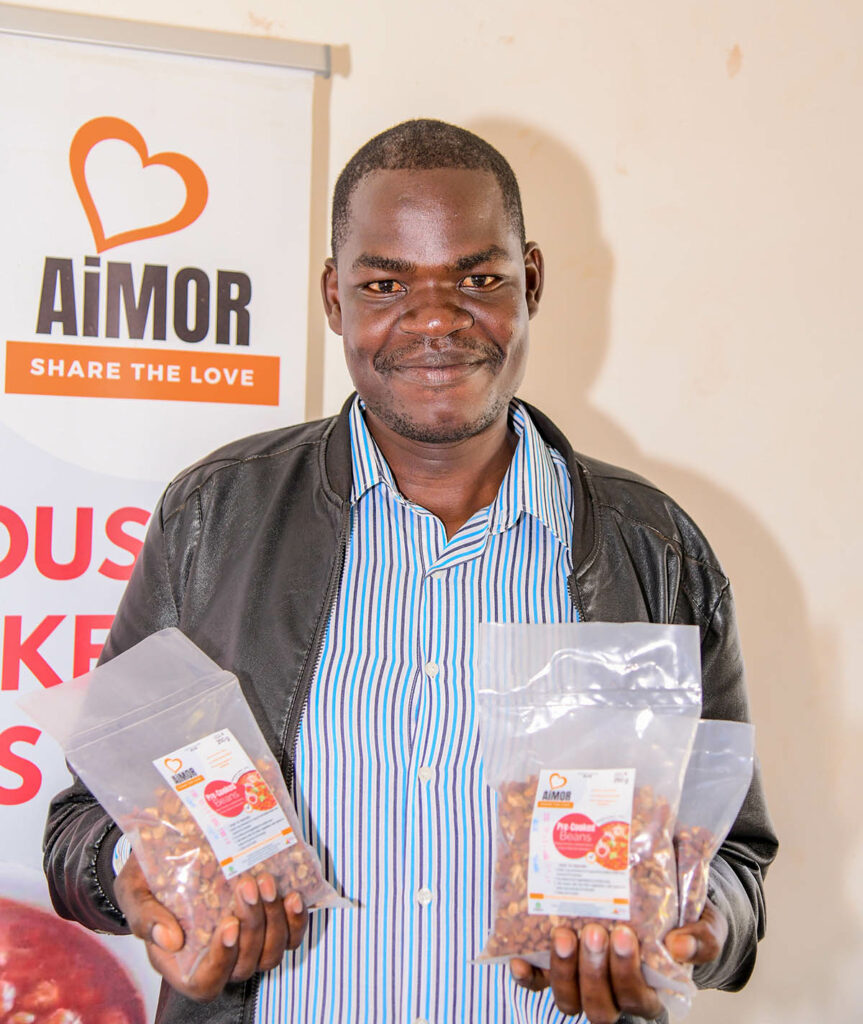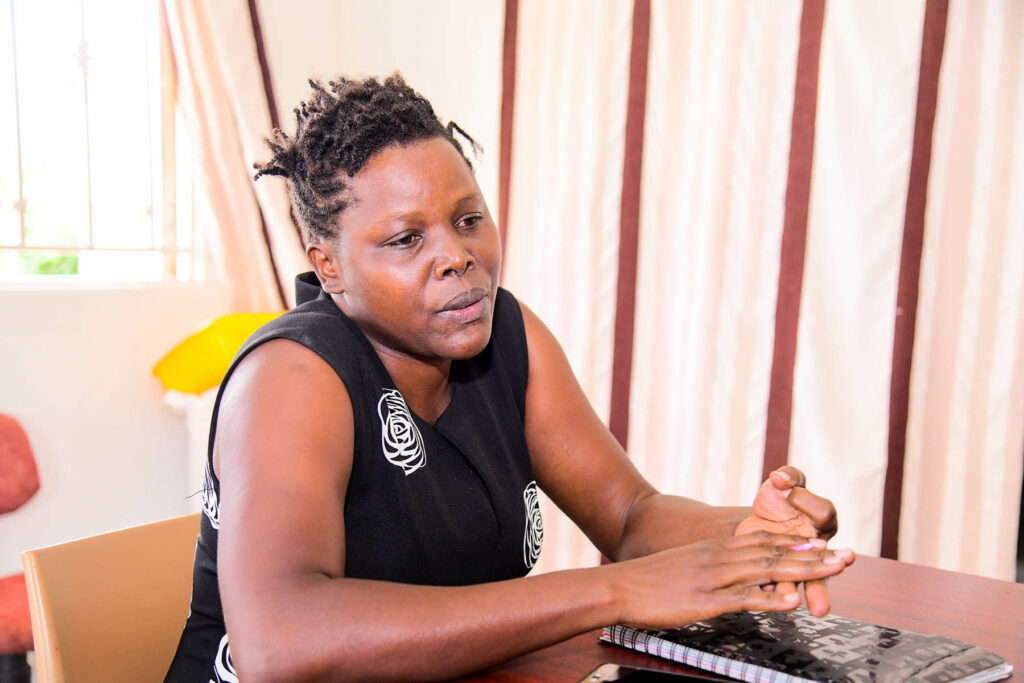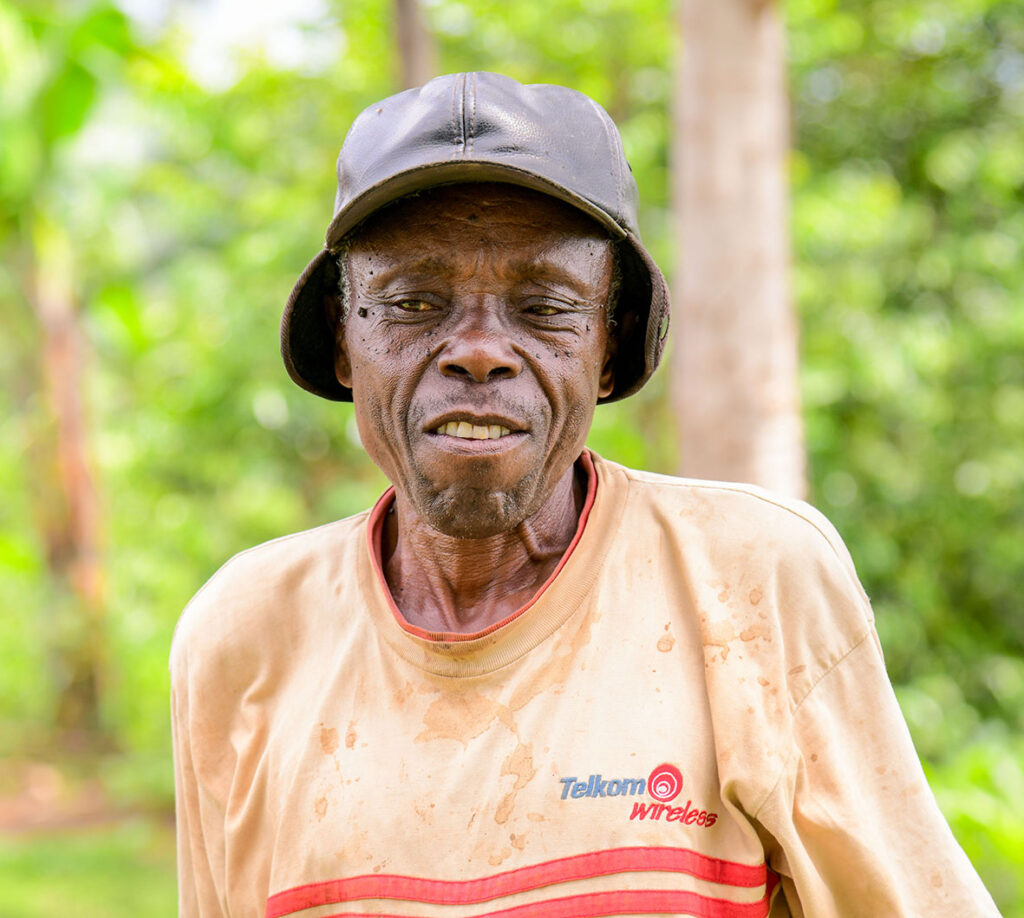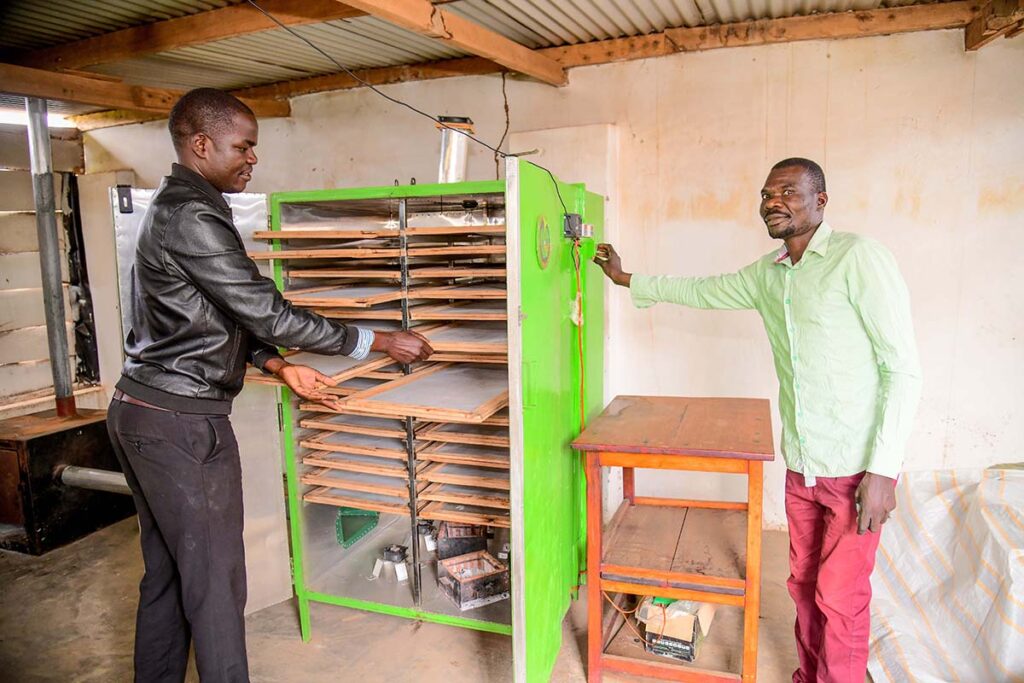By Herbert Musoke
The Eastern Agriculture Development Company Ltd was developed as a social business aimed at addressing the nutritional challenges of the communities arising from what one of the directors went through with her brother.
Sheila Alumo, who is the managing director of EADCL, had a brother with nutritional challenges and she was moved to look for a way to help other people who could be in the same situation and the company was incorporated in 2016.
“In the beginning she thought of establishing a non-government organization which usually stops with funding but she realized it wouldn’t last long so help more people. She decided to start a social business and because it was looking at nutrition, we started with ion and Vitamin A-rich Orange sweet potatoes and now we have diversified,” explains Joan Anyait, the project manager.

Diversifying
Alumo narrates that later when challenges of market and Covid-19 lockdown and other dynamics in production came, they had to think of what else they could do to increase the revenues and profit margins such that if one product is challenged another can bring in money.
“This is when we went into beans starting with Teso and with support from aBi, we were able to expand to other areas like Bugisu and Karamoja to produce more beans which are iron and zinc rich varieties of Naro bean 1,2 and 3. This is all aimed at addressing the nutrition challenges of communities,” she adds.
In 2020, EADCL, was looking for ways of conserving the environment and it started a pre-cooked beans brand tailored to direct sales to the final consumer and a kilogram of pre-cooked beans serves about 10-12 people yet with physical beans it saves about 10 people.
“We boil them and re-dry them in a way that maintains all the nutrients and the consumers re-soaks for about five minutes and fry them until they are ready to be served in the five minutes. This is to save time and fuel,” she explains.
Working with farmers
With its headquarters at senior quarters in Soroti city, Lumumba Avenue, EADCL right from the beginning, was designed to work with small holder farmers and now is working with organized farmer groups.
“We have field officers and agents who mobilize farmers in communities and they are trained. We go through the process of group dynamics, formation, training them and show them the advantages of working as a group,” says Anyait.
The group that goes through all the steps, will adopt it and sign a contract to produce and supply the company.
She explains that since the company started, they have worked with over 3000 individual small holder farmers. Those groups are between 25-30 members and currently it has over 104 across Teso, Karamoja and Bugisu.
Collecting harvest
Anyait explains that the agent is the aggregator who must have a storage facility where all the groups he/she is managing should take their harvest before being transported to EADCL main store at the head office where it is cleaned or processed and sold.
“Our agents are mainly referrals when we go to the sub counties and such people have been working with other NGOs or government projects. So, the agricultural officers at the subcounty have been helpful and later we have been able to recognize model farmers who can teach others,” she explains.
According to Anyait, post-harvest handling from farmers but with help from aBi, they have been able to train farmers right from the best agronomic practices to post harvest handling which has enhanced productivity and farmers have been able to produce high quality grain.
“Still with help from aBi, we were linked to National crops resources research institute (NaCRRI), who are supplying us with both foundation seed to the seed producers and quality declared seed for production,” she explains.
In addition, NaCRRI has trained 20 groups trained as seed producers and we are finalizing the process of certifying them as quality declared seed producers who will then be the suppliers of quality seed to other producers.
She adds that, with funding from aBi, the farmers have been given seed subsidies of about 50% which has helped them make more profits.
Harvest and processing
Last year, the company aggregated about 75mtn saying that currently farmers can produce about 500kgs per acre yet they can produce up to 800kgs but there are many challenges like floods, drought, cattle rustling among others.
“We are producing at a low capacity of about 30kgs per a day which is very low. We are looking at installing a machine that can produce between 500kgs and a ton of pre-cooked beans a day,” she says.
They are mainly doing minimal cleaning of beans and sale especially to whole sellers ranging from shs2, 500 to 2, 800 from farmers and the pre-cooled shs6, 000 a kilo.
“From the aBi funding, we are also getting a cleaning line that will enable us to carry maximum cleaning of our beans such that we can go to the export market,” she says.

Challenges
Zadouk Tapi, the head finance at EADCL, explains that they are challenged with weather. With aBi support they included a number of farmers in Teso but they were hit by drought and they thought of going to Mbale which is a predominantly bean growing area, but they were also hit by floods in Bulambuli.
“Previously, we used to have prices on which we would buy from farmers were clearly indicated in the contracts, say shs2, 800. But organizations like the world food program would come and hike the prices making it unprofitable to the company,” she says.
The other challenge is competition from other buyers especially those from Kenya and others who pay them while still in the garden who come and pay a lot making farmers forget that it was the company that trained, paid and walked the journey with them.
Working with aBi
Tapi explains that aBi signed a partnership agreement with EADCL to improve its supply chain by training farmers to improve the productivity of farmers and also to help the company meet its volumes of fortified bean varieties on a matching grant where each had to contribute a percentage.
When Covid-19 came in and the incomes of the company dropped, there was a need to diversify, as they added growing beans which are early maturing and rich in nutrients especially in areas of Karamoja as the company strives to improve nutritional requirements of farmers.
“In 2021, Abim experienced a prolonged drought but for farmers who had planted the beans early as we had advised them, harvested something and were able to eat and sell some to earn a living as it was highly demanded,” he says.
Using the aBi money, they have acquired moisture-meters, soil tasting kits, dryers at the aggregation points. “We are now in the last stages of procuring the cleaning line because we are not able to clean and keep it well because the difference comes with quality,” he says.
Future plans
According to Anyait, the company is also constructing a warehouse that will enable them trade between 300-500mtns because the cleaning capacity is 1-2tons per input. Also, we will increase pre-cooked volumes as institutions want to buy in bulk.
Also, they have plans to increase the network with farmers to about 10,000 farmers in the next five years and also include Sebei which is one of the best beans producing, starting with profiling possible farmers next season.
What farmers say
Christine Alimo a bean farmer from Adea trading center, Morulem subcounty in Abim district is EADCL’s agent saying she was an agent of an agent that used to supply the company with potato veins and when they came looking for agents with the beans project.
“In the beginning we were not into beans but now, the company has introduced improved bean varieties like Naro bean 3, which has attracted many women into growing beans. We still request more knowledge and irrigation because we are affected by weather changes, especially drought,” she says.
Steven Watuwa a farmer at Bulyuli village, Bumulika parish, Namboko subcounty in Namisindwa district says that he started with EADCL in 2019 through Keewa farmers group as the agent. He coordinated and facilitated training farmers in growing beans.
“They gave us 10kgs of seed but we were hit by drought, so my harvest wasn’t good. They however bought from us at shs1, 800 a kilogram. Last year in the second season I planted 25kgs of seed and harvested 300kg that I sold at shs2, 600 a kilo,” he says.

He says this income helped him send his children to school and also, set up a bricks’ laying project as his other side business adding that, this area wasn’t much into growing beans but now it is the most yielding crop especially Naro Bean 1 where others who have little land even rent to plant more.
Tereza Naluketu, a farmer at Namurunga village, Namutisa subcounty in Namisindwa district, says that he started working with EADCL, in 2021 as a field agent. “I have been the link between the company and the farmers, facilitating training, supply of seeds, monitoring the gardens for proper agronomic practices and post-harvest handling,” she explains.
She explains that she now has three active groups with over 70 farmer members. According to Naluketu, the project has helped change the mindset of farmers to know that farming, especially beans, can be grown as a business.
Johnson Barasa, one of the farmers in Buwambwa farmers group, one of the groups under Naluketu explains that he never knew beans are grown in line, only after the training from EADCL, which has enabled him to see the benefits of growing beans in lines.
“We still have challenges with pests and diseases that attach to our beans. Also, we request for help for irrigation as we are hit by drought on many occasions that destroys all our crops,” he requests.






